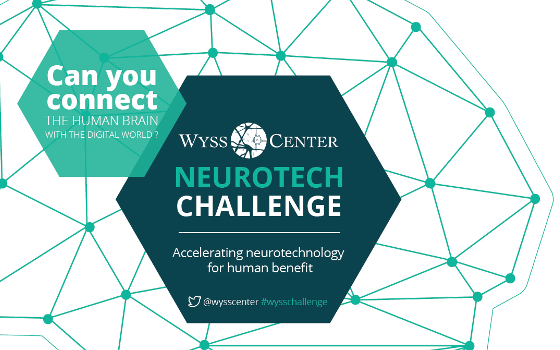Open to anyone, from anywhere in the world, the award will provide access to the expertise and technical facilities at the Wyss Center as well as funding to translate the successful idea from research concept into a clinical application.
Accommodation and salary for the project leader in the beautiful Lake Geneva region of Switzerland will be included in the award for a minimum of a year in addition to ongoing funding for the project.
The deadline for entries to the Wyss Center Neurotech Challenge is the 1st February 2017.
Proposals may be sent out for independent external review. A short list will be announced on February 14 and the winner will be announced in April 2017.
For further information, please visit:
http://www.wysscenter.ch/en/neurotech-challenge
About the Wyss Center for Bio and Neuroengineering
The Wyss Center provides the expertise, facilities and resources to accelerate the development of creative neuroscience research into clinical solutions for human benefit.
Based at Campus Biotech in Geneva Switzerland, the Wyss Center offers competitively awarded project funding for innovative neurotechnology research projects that have the potential to make substantial impact.
The Center provides access to advanced neuroscience and engineering facilities, as well as the integrated clinical, regulatory and business resources required to guide high risk, high return projects on their the complex journey from research to product.
The Wyss Center's unique interdisciplinary team of specialists, including research scientists, engineers, regulatory experts, business development specialists and clinicians, help to develop the products that will prevent, diagnose or treat nervous system disorders, or will lead to useful technology with the potential to improve lives.
The Center will support highly innovative neurotechnology projects from anywhere in the world as long as they fit the core mission to accelerate the development of neurotechnology for human benefit and make full use of the Center's capabilities and resources.
